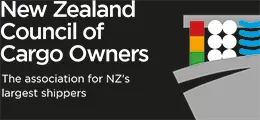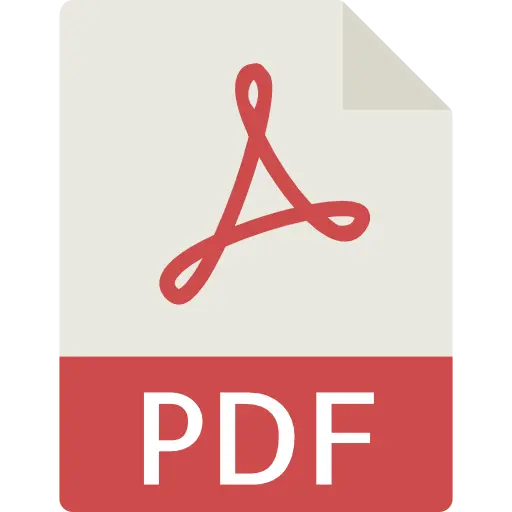Issue No2 June/July 2014
Pathway to big ships
The recent announcements by KOTAHI , Port of Tauranga, and Maersk will could see the next generation of bigger container ships calling at a New Zealand port potentially as soon as 2016. Your Councils 2010 report “The Question of Bigger Ships” called for four New Zealand ports to prepare for the arrival of ships up to 7,2000TEU, it is therefore gratifying to see that the Port of Tauranga is to deepen its channel in preparation of the arrival of 6,500TEU vessels. Whilst much more needs to be done to make this a reality, including the involvement of other Carriers in any big ship service to ensure that we do not see a significant lessening of competition between carriers , the Council is encouraged by these announcements and will continue to monitor and engage with all participants across the supply chain.
All Ports need to continue with expansion plans.
The Council is firmly of the view that a single big ship capable port is not in the long term interests on New Zealand.
Recent tragic events at Lyttelton and the grounding of the MS Rena are a timely reminder that we need the resilience from natural and man made disasters that a multi big ship port provides.
To that end we are encouraging the ports of Auckland, Lyttelton and Otago to continue with their plans to deepen channels and make the necessary upgrades to their terminals and landside infrastructure.
Chinese Regulators decline approval of the P3 Alliance.
Despite obtaining clearance albeit with conditions attached from regulators in the US and Europe, the Chinese regulator MofCom determined that the proposed joint fleet- operation centre was the critical factor that draws P3 as “essentially different” from other container alliances and so quashed the plans of the world’s three largest lines.
“In the case [of P3], the participants integrate all of their capacity in the east-west trades through a network centre, which makes itself essentially different from traditional shipping alliances in aspects including the form of co-operation, operational management and cost sharing,” MofCom says in the official ruling which without a right of appeal blocks plans for the world’s biggest container alliance.
Based on a five-point analysis, MofCom concludes that P3 is a close-knit alliance, in contrast to the loose tie-ups seen in existing practices, and that it will “eliminate effective competition in the market, and may further raise the entry barrier to the international liner market, which may prevent any new competitive force… growing”.
Unveiling their decision to tie up one year ago, one of the most innovative and bold ideas by Maersk Line, Mediterranean Shipping Co and CMA CGM was to set up a joint fleet-operation base in London, in the form of a limited liability partnership.
“The deal will transform Asia-Europe liner shipping market from a relatively loose one to a highly concentrated one. The market structure will change sharply,” the ruling says.
Look out for the council at the upcoming Ports and Shipping Conference at the Crown Plaza Auckland on the 27th August
Glimmer of hope that amendments to the Commerce Act may pass before parliament closes at the end of July.
In a surprising move the Commerce (Cartels and other matters) Amendment Bill has an outside chance of being passed into legislation sooner than expected as a result of the Bill having had a partial debate in the house on the 24th of June. It now sits at number 18 on the order paper and there is a vague chance this might pass before the election.
Australian Peak Shippers Association (APSA) support your Councils call for international shipping to be brought within the scope of the commerce act
There has been some confusion around the APSA’s position on proposed changes to Australian competition law which was potentially counter to your councils view that International Shipping should not be exempt from domestic competition law.
Their position was clarified during a recent meeting with the council.
Whilst the APSA has recently called for Shipping to remain outside the scope of more general Australian competition law it does not support a blanket exemption as is currently the case under New Zealand law. International Shipping in Australia is currently subject to laws designed to accommodate the vagaries of International Shipping and the APSA wish to not only see these laws remain separate from other commercial law but be strengthened to give shippers more protection from uncompetitive behavior including the removal of “discussion agreements” whereby Carriers are able to discus and set freight rates in concert.
Mandatory Container Weighing by 2016
Maritime New Zealand delegates recently attended the 93rd session of the Maritime Safety Committee (MSC). At this meeting the amendments to the Safety of life at Sea Convention, as well as the accompanying guidelines were approved with a view to adoption at the next meeting of MSC in November.
What implications could this have on our supply chains?.
Their will be two options to satisfy the requirement which is likely to come into force sometime during 2016.
Shippers will be required to either physically weigh their container or have in place processes and procedures approved by MNZ to declare the container weight
As certain cargoes, and in particular non uniform cargo may not satisfy the requirements for using a process that does not require the weighing of the packed container then the shipper will be required using an approved process to weigh all containers.
Clearly it is in shippers best interests to get on the front foot and ascertain the potential implications on their supply chains, in the meanwhile the council will continues to engage with MNZ in developing workable guidelines for New Zealand Shippers.
Maritime Labour Convention
Consultation is currently underway on whether it is in New Zealand’s best interests to become a party to the Maritime Labour Convention, 2006
The Maritime Labour Convention, 2006 is an international treaty adopted by the International Labour Organization. It sets internationally agreed minimum standards to address the health, safety and welfare of seafarers in areas such as:
- conditions of employment
- accommodation
- recreational facilities
- food and catering
- health protection
- medical care
- welfare and social protection issues
With submissions due to close on the 11th July members with an interest in this area are advised to either make a submission or provide views to the council who will be preparing a response on behalf of all members.
2014 Annual General Meeting
The council is holding a full day session on the 28th of August in Auckland which will comprise our AGM and an open session for all members. We are hopeful of having a number of guest speakers covering national and global developments in the supply chain so please put the date in your diaries, more details to follow in the next few weeks.
And finally a welcome to new members
In order to broaden its membership base the council is actively seeking new members.
The council is delighted to welcome the following companies as members and look forward to working with them to building a stronger New Zealand supply chain.
- Kiwi Rail
- Synlait Milk
- Oceanbridge
Any enquiries from potential members should be forwarded to Mike Knowles or Peter Morris
We are always keen to receive articles and media pieces for publication on our web site from members that feel they may be of interest to other members.
Please send through any pieces to NZSC.ExecutiveOfficer@gmail.com

